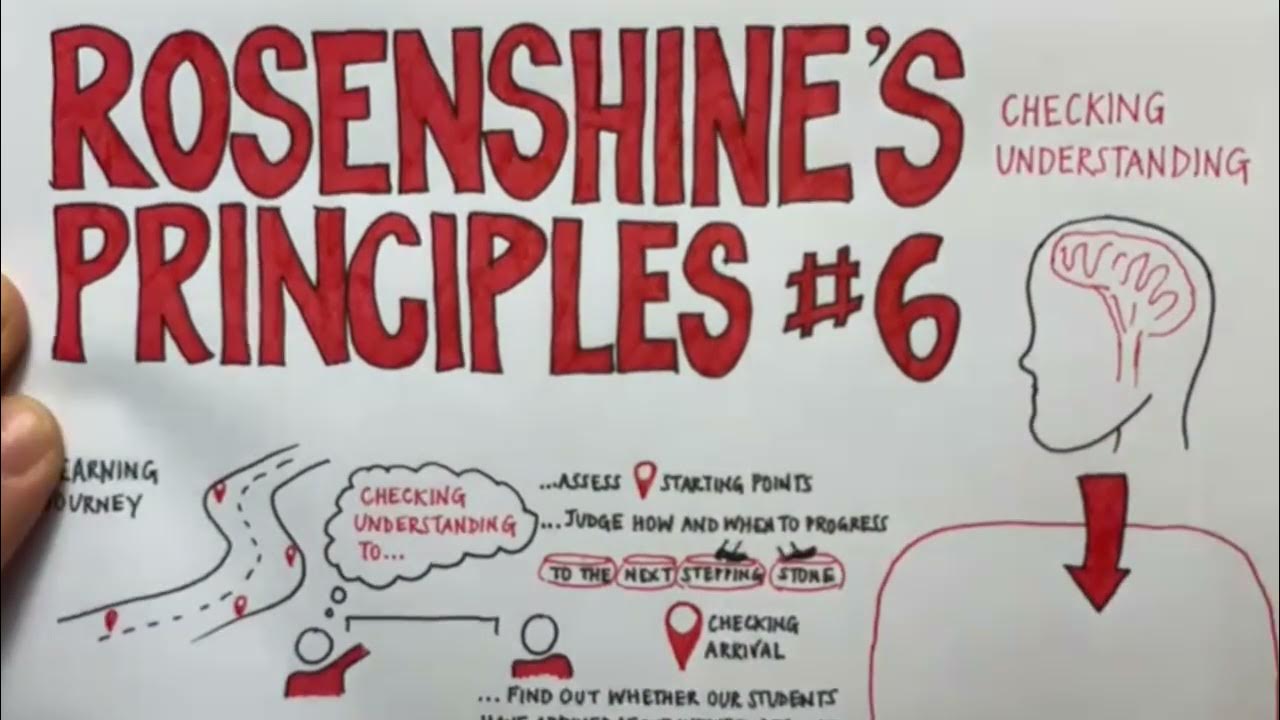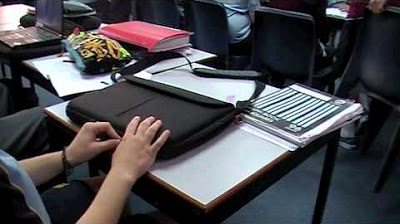Rosenshine #3 effective questioning
Summary
TLDRThis video explores theGenerate summary in JSON power of effective questioning in the classroom, highlighting how expert teachers use a variety of techniques to check learning, identify misconceptions, and challenge students. It emphasizes linking questioning to the learning journey, from pre-assessment to embedding new knowledge, and demonstrates strategies to engage all learners, such as peer discussion, mini whiteboards, and whole-class responses. Drawing on research by Good & Gas (1972), the video shows that increasing factual and process questions improves outcomes. Practical examples, like teaching Kandinsky and synesthesia, illustrate how questioning can deepen understanding and inspire students to connect ideas creatively.
Takeaways
- 📝 Expert teachers use a variety of questioning techniques to check learning, identify misconceptions, and scaffold student understanding.
- 🎯 Effective questioning is central to the Woollen School learning journey, present at every stage of learning.
- 📊 Pre-assessment and checking prior knowledge help establish starting points and uncover misconceptions.
- 💡 Questioning is most powerful when it challenges and stretches students’ understanding, helping embed new learning.
- 🔄 Encouraging students to rehearse, rephrase, elaborate, and summarize new material enhances retention.
- ✅ Questioning allows teachers to determine if additional instruction is needed for students to reach their learning goals.
- 📈 Research by Good and Gas (1972) shows that increasing factual and process questions during new material introduction improves student outcomes.
- 🤝 Effective classrooms encourage students to ask questions and engage in peer questioning.
- -
- 🙋 Successful strategies for involving all students include 'teach your neighbour', summarizing and sharing answers, and hand-raising to check understanding.
- 🖍️ Tools like mini whiteboards and 'core response' techniques allow all students to participate and answer simultaneously.
- 🎨 Example application: teaching concepts like 'synesthesia' through discussion and peer explanation links ideas to broader creative contexts, such as Kandinsky’s paintings.
Q & A
What is the main purpose of effective questioning in the classroom?
-Effective questioning helps teachers check learning, identify misconceptions, scaffold learning, challenge students, and stimulate interaction across all stages of the learning journey.
How does questioning support the learning journey at a school?
-Questioning links to the learning journey by establishing starting points through pre-assessment, uncovering misconceptions, and enabling students to rehearse, rephrase, elaborate, and summarize new material.
According to the transcript, what makes questioning most powerful?
-Questioning is most powerful when it challenges and stretches students' understanding, helping them embed learning by engaging deeply with new material.
What did the research by Good & Gas (1972) demonstrate regarding questioning?
-The research showed that increasing the number of factual and process questions when introducing new material led to higher post-test scores, demonstrating that more targeted questioning improves student learning outcomes.
What classroom strategies encourage students to ask and answer questions?
-Strategies include 'teach your neighbour' where students discuss answers with peers, summarizing and sharing key points, raising hands to indicate agreement, using mini whiteboards for simultaneous responses, and employing cold responses to involve all students.
How can teachers check the understanding of all students at once?
-Teachers can use techniques such as mini whiteboards or core responses, which allow every student to answer simultaneously, giving immediate feedback on understanding.
Why is it important to ask students to rephrase or summarize information?
-Rephrasing and summarizing help students process and internalize new information, clarify misconceptions, and demonstrate their understanding of the material.
How was the concept of 'synesthesia' introduced effectively in the classroom example?
-The concept was introduced by repeating the key term, encouraging students to discuss it with peers, and linking it to Kandinsky’s art, illustrating the connection between color and music.
What role does pre-assessment play in questioning strategies?
-Pre-assessment allows teachers to check prior knowledge and attainment, helping them establish starting points and tailor questions to address gaps or misconceptions.
What are the benefits of encouraging students to ask questions to each other?
-It promotes peer learning, active engagement, critical thinking, and helps students articulate their understanding while allowing teachers to monitor comprehension indirectly.
Why is interaction considered a key aspect of effective questioning?
-Interaction engages all students, encourages collaborative learning, fosters deeper thinking, and helps teachers assess understanding dynamically throughout the lesson.
Outlines

Esta sección está disponible solo para usuarios con suscripción. Por favor, mejora tu plan para acceder a esta parte.
Mejorar ahoraMindmap

Esta sección está disponible solo para usuarios con suscripción. Por favor, mejora tu plan para acceder a esta parte.
Mejorar ahoraKeywords

Esta sección está disponible solo para usuarios con suscripción. Por favor, mejora tu plan para acceder a esta parte.
Mejorar ahoraHighlights

Esta sección está disponible solo para usuarios con suscripción. Por favor, mejora tu plan para acceder a esta parte.
Mejorar ahoraTranscripts

Esta sección está disponible solo para usuarios con suscripción. Por favor, mejora tu plan para acceder a esta parte.
Mejorar ahoraVer Más Videos Relacionados

Rosenshine #6: checking understanding

PAUD12 Anak Ngobrol di Kelas Saat PBM

CLASSROOM MANAGEMENT TIPS l Behavior Management l Third Grade Teacher Vlog l Teacher Tips

Identifying maths anxiety as a leader of mathematics

The Role of ICT in Education

HLPs #8 and #22 Provide Positive & Constructive Feedback to Guide Students' Learn
5.0 / 5 (0 votes)
